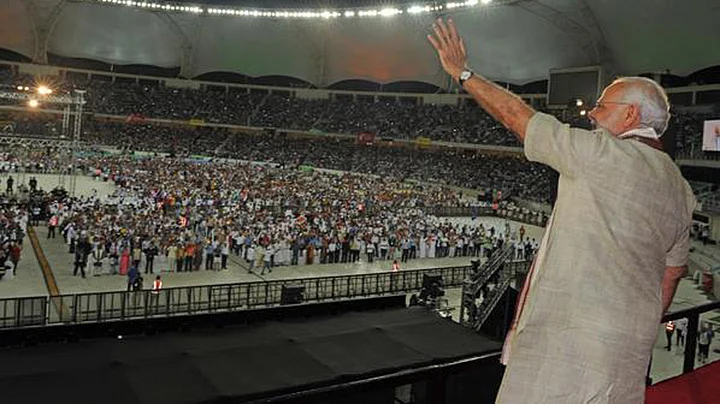Prime Minister Narendra Modi’s visit to the United Arab Emirates (UAE) has come at a time of enormous flux and turbulence in West Asia. The regional order that emerged after the epoch-making events of 1979 has come apart. A new balance is struggling to take its place.
Forging New Ties
- UAE, a significant player in the new regional system, recognises that India is a major global player
- New areas like space, civilian nuclear, and defence have been identified for cooperation
- It’s noteworthy that the joint statement misses out on the situation in West Asia
The UAE is a significant player in the new regional system and it recognises, as do other regional countries, that India is now a major global player. Thus Modi’s visit has an importance far beyond the confines of the bilateral India-UAE relationship which is, of course, valuable to both countries. The joint statement that was issued on the conclusion of official discussions between Modi and Sheikh Mohammad bin Zayed, the Crown Prince of Abu Dhabi, eloquently acknowledges these realities.
UAE’s warm approach to India and Modi was evident in the welcome accorded to the PM; it was much in excess of the requirements of protocol. Modi did well to set the stage of his visit by mentioning the Islamic links between the two countries. In an interview to a UAE daily he said, “Religion, culture and commerce provide enduring links between us.”
Modi also showed that he is the prime minister of a secular state when he inscribed in the visitors’ book of the Sheikh Zayed Mosque that it would be “a symbol of peace, piety, harmony and inclusiveness that are inherent to the faith of Islam.” Indian critics of Modi should take particular note.
Transformed Ties
The past five decades have witnessed a complete transformation of India, UAE and the relationship. From a centre of smuggling of gold and other contraband to India, the UAE is now a major world producer of hydrocarbons, a thriving trading centre and has around $800 billion in investible funds.
It is no longer insular but outward looking and home to millions of expatriates from the world over, including 2.6 million Indians who remit around $10 billion to India. India is no longer only a source of cheap unskilled labour but a stable country undergoing rapid all-round development. Modi’s visit demonstrates that the two countries fully recognise these realities.
Modi’s public engagements in the UAE were in keeping with the elements which characterise his foreign tours: meetings with businessmen and investors, visits to centres of cutting edge technologies or places that are futuristic, huge meetings of the Indian diaspora and religious places.
Thus Modi’s dinner engagement with the head of the Abu Dhabi Investment Agency, his visit to the zero-carbon city which is under construction and his 70-minute speech to 50,000 Indians in Dubai where he lavished praise on his host for granting land for the construction of a temple in Abu Dhabi, a significant and unprecedented gesture by Sheikh Mohammad.
New Areas of Cooperation
The decisions taken during the visit underline a desire to qualitatively upgrade the relationship into a comprehensive, strategic partnership. In keeping with this basic decision, new and sensitive areas of cooperation – space, civilian nuclear, and upgrading defence ties – have been identified. India will have to move purposefully and quickly on these fronts to show that its actions can match its commitments.
The UAE has agreed to invest upto $75 billion in infrastructure projects in India. Naturally it would like an adequate rate of return and no surprises of the kind many investors have faced over the past few years. Dramatic developments should not be expected on this front. Rightly the two countries also decided to enhance their mutually important trade and energy partnership.
It is obvious that Modi and UAE leaders focussed extensively on the dangers of terrorism and have decided to build a web of cooperation to combat the phenomenon. Particularly important is UAE’s decision to support the Indian proposal for a Comprehensive Convention on International Terrorism first made to the United Nations in 1996. The coded diplomatic formulations on terrorism are an advance but capable of varying interpretations.
It is noteworthy that the joint statement does not mention, even fleetingly, the situation in West Asia. It would have been preferable if it focussed on ISIS which is a danger to civilisation itself.
A final word: the joint statement does not contain even a ritualistic reference to the Palestinian cause. How the world has changed!
(The writer is a former Secretary (West), Ministry of External Affairs.)
(At The Quint, we question everything. Play an active role in shaping our journalism by becoming a member today.)
